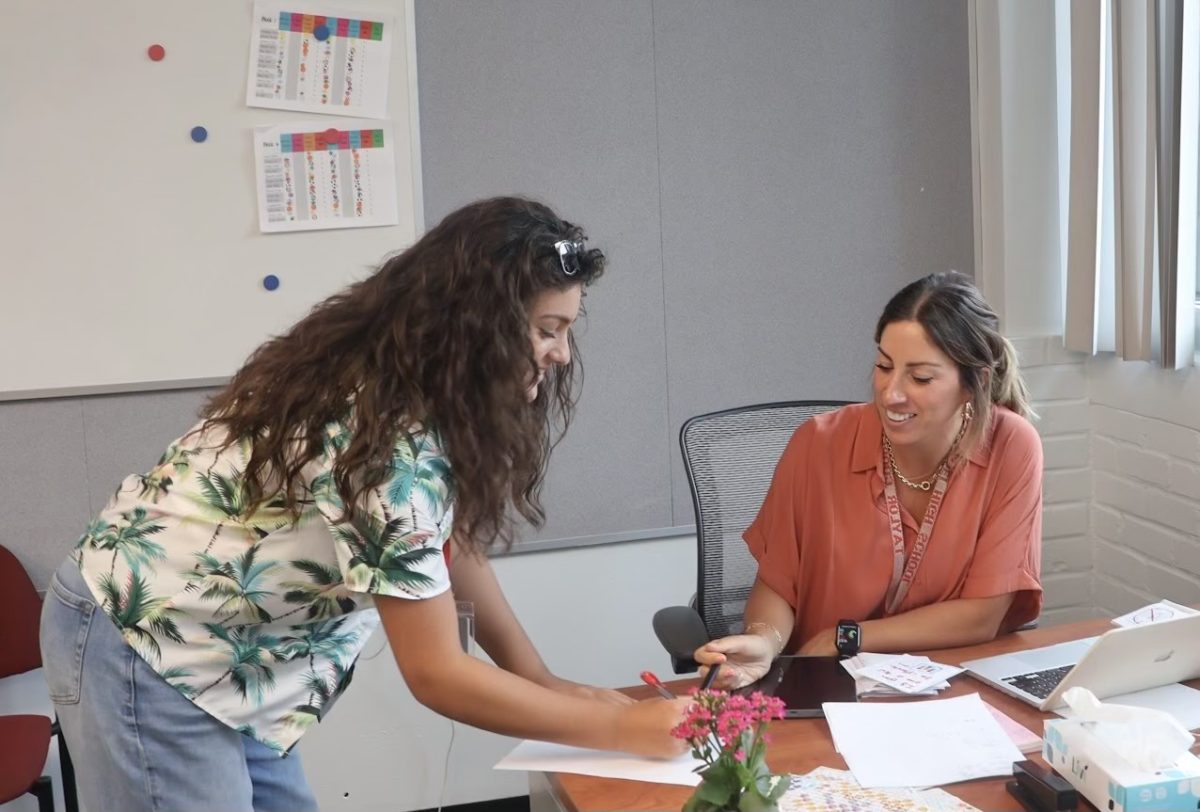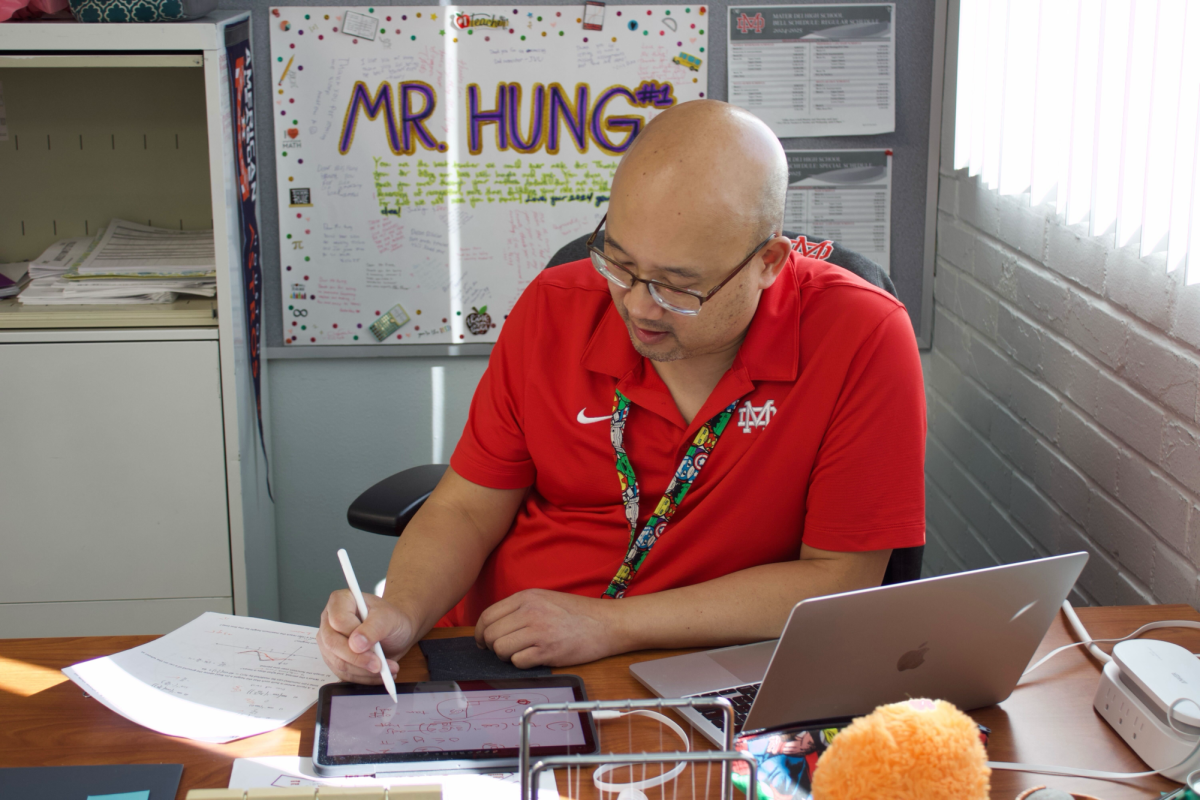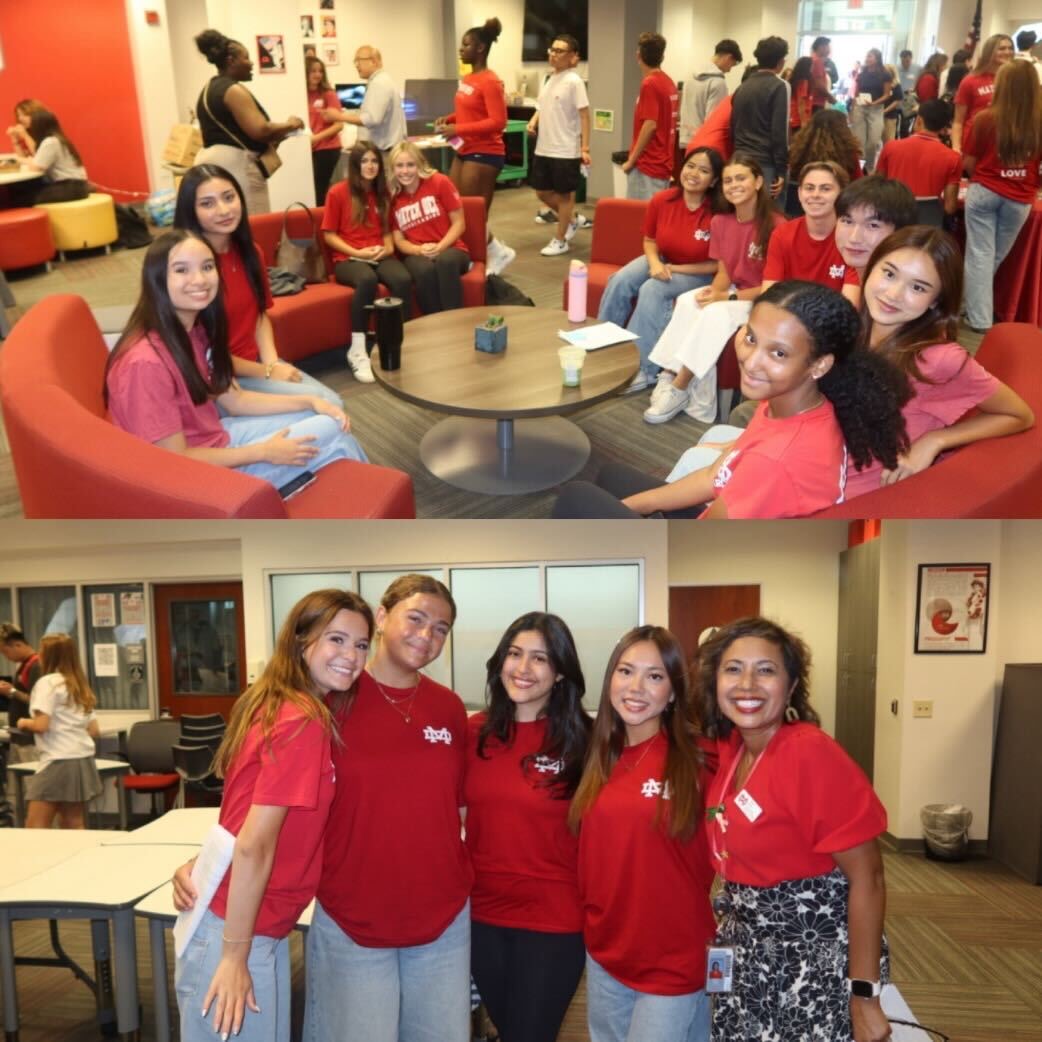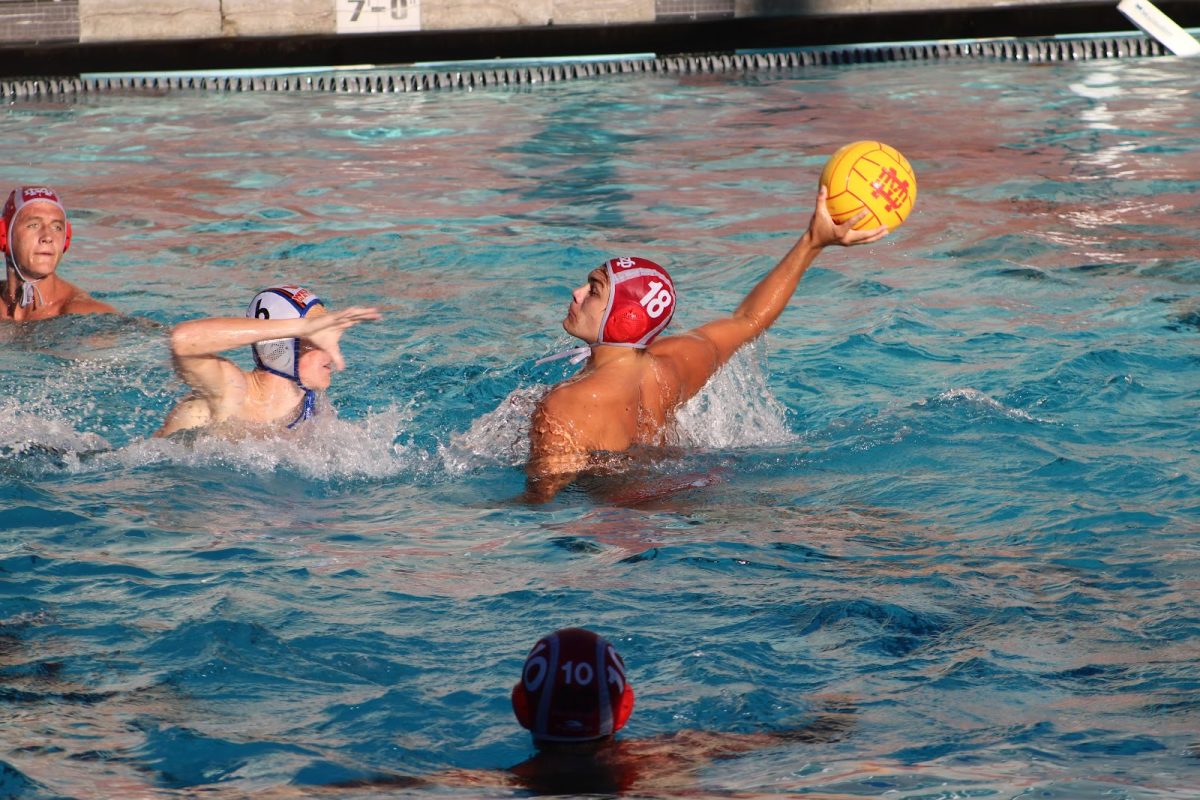Advanced Placement (AP) level classes allow students to take college-level courses and eventually receive college credits if they pass the AP exams in spring. Many students choose to reap the benefits of these classes, which allow them to skip general education courses from their college schedule and make them stand out to potential colleges. To do this, they must score a 3 or higher on the exam, with some universities even requiring a 4 or 5 for credit. This means students must master the information from the course they are taking. However, that poses a multitude of issues. Many students seek advice on how they can acquire these high scores, and both successful students and teachers can help guide them on their journey.
Students like senior Juliana Botros have nearly perfected their AP exam study methods. Botros has received fives on every single one of her exams, which demonstrates her mastery of the subjects.
“So far, I have taken exams for AP European History, AP United States History, AP English Literature and Composition, and AP Biology,” Botros said.
Botros’ main form of studying is using the resources provided to her by her teachers, as well as ones she has accumulated on her own. These allow her to review all the information she was provided during class, as well as gain additional information to aid her on the exam.
“To study, I review class notes and AP Classroom practice problems. I also like to watch related YouTube videos and take notes,” Botros said. “Some useful YouTube channels include Heimler’s History and Bozeman Science. I would also suggest Khan Academy for practice problems, the AP Biology Review from the Princeton Review, and different Crash Course history books.”
She advises students to try their best on these exams because of their benefits. Botros urges students to attempt to follow these methods, and take the exam seriously.
“Pace yourself and try your best!” Botros said. “I think passing AP exams can be very important! Doing well can eliminate certain courses in college and can even help in the college admissions process.”
Senior Skyler Rosenberg has also excelled within his AP courses. As he mastered the subjects, he performed well on each test.
“I got a four on European History and Physics,” Rosenberg said. “I got a three for AP Lit. I got a four on U.S. History, and I got a five for Calculus.“
Rosenberg is able to examine different methods depending on what kind of subject he is taking. When studying for an exam that requires him to study certain time periods such as subjects like European History and U.S. History, he goes through the entire year and masters it.
“For history, for example, I kind of looked at the timeline of everything that happened, because everything connected with each other,” Rosenberg said. “And once I got a general idea of what happened at each certain time period, everything came back from what my history teachers taught me.”
His methods for other subjects such as physics and calculus differ as they require alternative types of mastery. Language arts and history requires memorization and timelines whereas math and science require a student to understand concepts.
“For math and the sciences, it’s a little bit different,” Rosenberg said. “Instead of a timeline, all the concepts connect. For calculus, everything that you’ve learned from the first week of class to the last week, they all connect. So I just did a bunch of practice tests and that definitely helped me master things that I didn’t know as well.”
Even if students don’t utilize these methods and tools, Rosenberg has advice for them on the actual day of the exam. With confidence, calmness, and composure, students can make it through the test and even pass.
“Just try your best,” Rosenberg said. “Don’t sleep during the exam, as a lot of people joke. You should just try and take it. If you at least paid attention slightly in class, you’re gonna probably get a three. Don’t be scared by everything, and just manage your time to get through the test.”
While tips from their own peers can be incredibly helpful for students to take into consideration, advice from a seasoned teacher can also be useful during exams season. AP U.S. History Teacher Ben Van Dyk has advice for students to implement prior to exam season.
“Paying attention in class and being prepared when you come to class [is important],” Van Dyk said. “Also when there’s an assignment or an activity, to be focused and to prioritize that above other things, like phones or other distractions. Of course, it’s also the daily review. Take 20 to 30 minutes every day, but not simply just reading, try to actively recall information.”
Van Dyk has picked up on qualities of students who usually excel in his class after teaching for a number of years. While they usually follow the regime previously stated, they also possess traits that make them successful.
“Work ethic, being able to just work hard, apply yourself to avoid temptation when it comes to distractions,” Van Dyk said. “I’ve seen students work on this. They’ve struggled at the start of the year to be focused, but over time, through just pure perseverance, eliminating their distractions and dedicating themselves when they’re in the classroom or at home [they’ve improved].”
Besides simply information-based improvements, he recommends routine-based additions that students can make to further excel on the actual exam.
“Eat a good breakfast so you’re not hungry, nothing too heavy in sugar, so you don’t crash out,” Van Dyk said. “Get to bed early, and don’t cram or anything like that. You either know it at this point or you don’t. Get some nice rest as best as possible, because I know you’re gonna be anxious. Come to school on time, be early, so you’re not running late, and as you’re about to begin the test, just take a deep breath and realize you know this.”
Van Dyk urges students to make an attempt at these exams, as he has witnessed the real-world benefits first hand after passing his own APs.
“They can be worth it for me personally, it was worth it when I went to UCLA because I entered as a second year student, because I covered all of my first year studies due to AP courses,” Van Dyk said.” ”So paying for my own college made it significantly cheaper, and that’s where it was absolutely worth it.”
Even taking all these tips, methods, and resources into consideration, some students won’t receive the score they hoped for on their AP exams. Van Dyk understands the potential disappointment, and ascertains that there is more to life than passing these tests.
“And remember, it’s not the end of the world,” Van Dyk said. ‘If you don’t do well, you’re not gonna go to jail. You’re not gonna end up homeless. If you don’t do as well as you would like to. And also, your score is unique to you. Don’t compare your score to somebody else’s.”




![WORK TO SUCCEED By working these tips into their study schedule, students can reap the benefits of AP courses. With just a few easy lifestyle changes, and new methods before the test, students can see an increase in scores that other successful students have witnessed. “It‘s really about making sure that throughout the year you know what you're doing,” senior Angela Karanja said. “[Also] being calm the day of, so that you can remember everything that you learned [is helpful].” Infographic by Ava Gomez.](https://thescarletscroll.com/wp-content/uploads/2025/03/IMG_5210-1200x676.jpeg)


![A YEAR IN REVIEW
Between Nov. and Dec. 2024, 57 respondents voted for their favorite songs, artists, and albums. Every category had multiple options, and each one faced tight competition as the artists Sabrina Carpenter, Kendrick Lamar, and Billie Eilish battled for the top spots. Students like senior Payton Bauer encourages others to check out other popular singers, if they haven’t already. “I would say [listen to Carpenter] if you're [wanting to] feel good about yourself,” Bauer said. “Or maybe you just want something to work out or dance to. [Her music is] really fun.”](https://thescarletscroll.com/wp-content/uploads/2025/02/Orange-Black-Why-Vinyl-Records-Rock-Music-Infographic-e1738774839991.png)


![GETTING BETTER TOGETHER Mater Dei swimmers exert themselves at morning practice. As the season approaches, the swim team must discipline themselves for their early swim competitions. “Waking up early for practice is really hard, and getting yourself up in the morning and committing to the sport can be [difficult] at times,” Acevedo said.](https://thescarletscroll.com/wp-content/uploads/2025/10/img_9894-1200x800.jpg)
![FRIENDSHIP IN PRINT Members of the Hi-Lighter student newspaper gather for a press conference in 1954. Among them is senior Lenore Rigney (O’Hara), who had worked on the publication for two years after transferring to Mater Dei as a junior. “I found the students were all so friendly and accepting,” O’Hara said. “It was [important] to be friendly to someone new and to help them get used to the school and make friends.”](https://thescarletscroll.com/wp-content/uploads/2025/10/IMG_3582-1200x794.jpeg)



